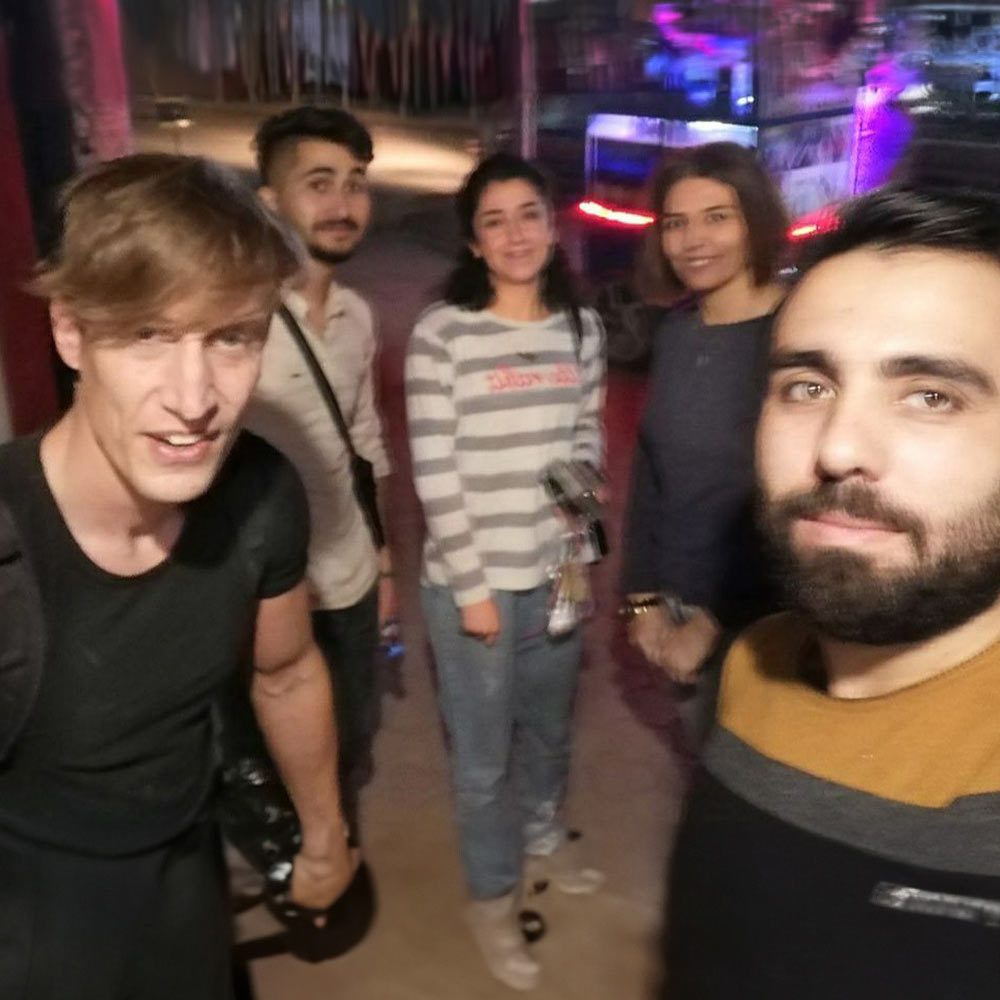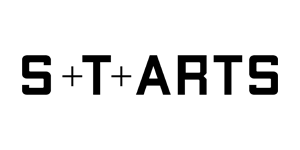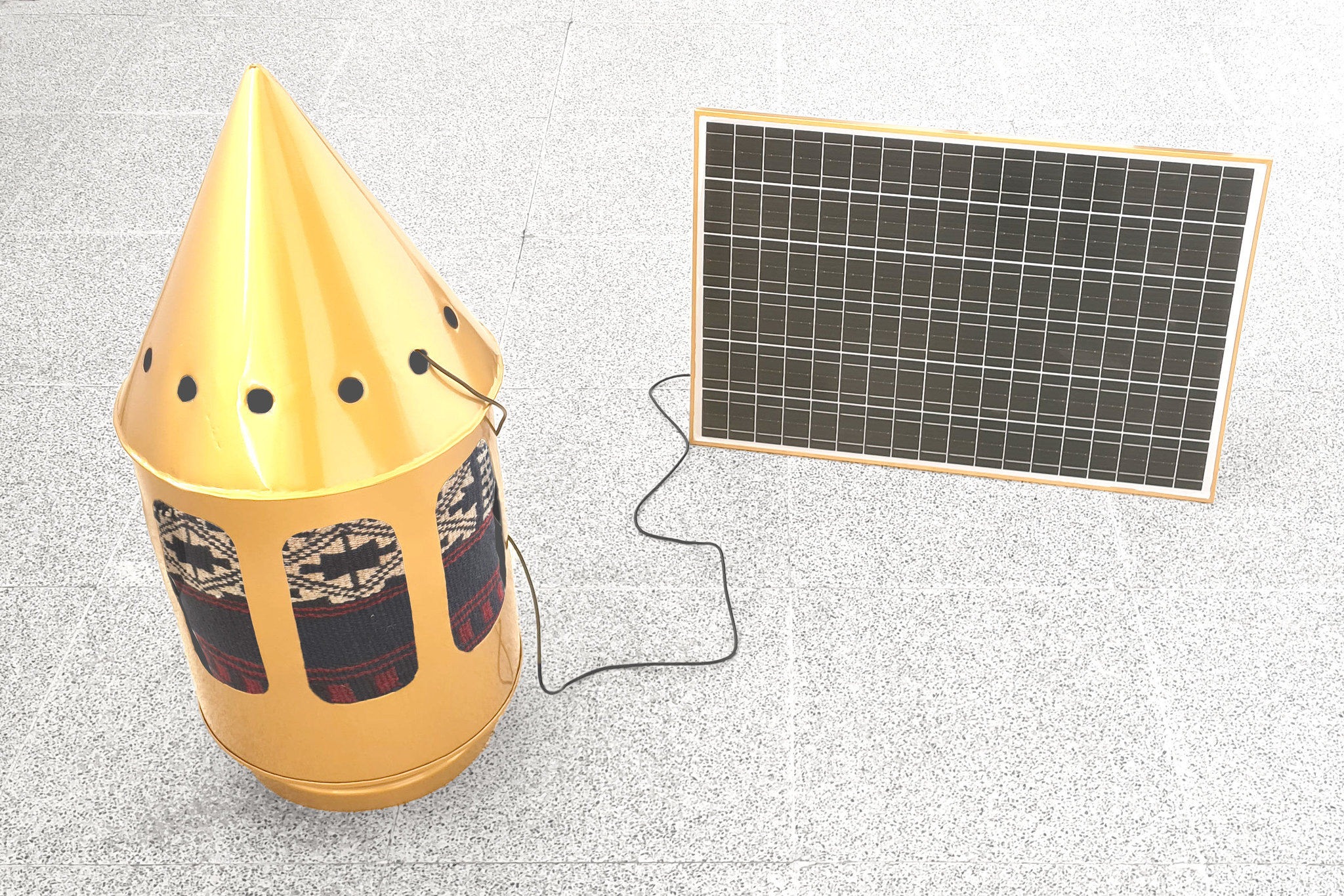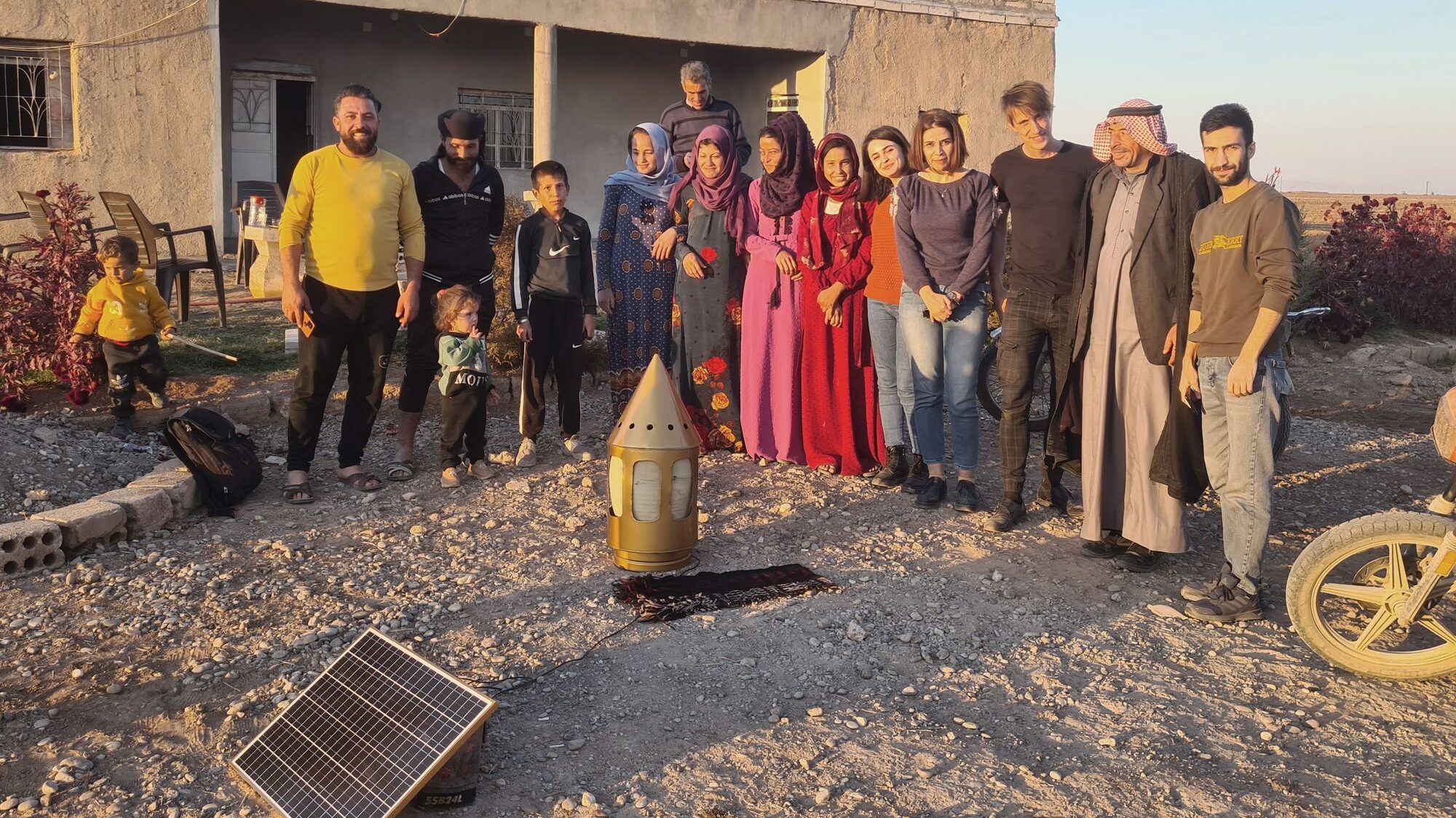Electricity provision is poor in Rojava, due to war-damage and scarcity of fuel. Turkish bombardments have destroyed the power grid. European-style refrigerators require large solar systems that cost the equivalent of a year’s income or more. The absence of adequate cooling systems has detrimental effects on the quality of life. Meanwhile, alternatives that are associated with historical methods are unpopular: any technology that falls outside Euro-American visions of the future tends to be perceived as “primitive”.
Revolution Refridge responds to this: Firstly, the device combines historical, vaporization-based cooling with a contemporary solar system. Secondly, its design suggests an alternative, regionalist futurity, fusing sci-fi idioms with regional heritage. The unit shape is inspired by space exploration rockets and historical regional architecture. Covered in fragments of Kurdish carpets, its golden color connects to both traditional jewelry and high-tech circuitry.
Bio
-
 Photo: Rojava Center for Democratic Technologies
Photo: Rojava Center for Democratic TechnologiesRojava Center for Democratic Technologies
SY
The Rojava Center for Democratic Technologies is formed by a fluid group of artists and engineers working in the Autonomous Administration of North and East Syria (AANES), Initiated by Dutch artist and cultural critic Dani Ploeger, it combines art and engineering to develop visions and practices for a postcolonial technological future built on the principles of the Rojava Revolution: socialist anarchism for stateless governance, gender equality, cooperative labor and ecology.
Credits
The development of Revolution Refridge has been supported by the University of Rojava and The Royal Central School of Speech and Drama, University of London
Presented in the context of the STARTS Ec(h)o project. STARTS Ec(h)o is funded by the European Union under Grant Agreement No. 101135691.



